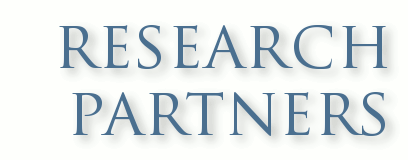Do you have a research project in mind but don’t quite know where to begin or how to proceed?
We will help you formulate your research questions and explore various approaches to finding answers.
Do you know exactly what research questions and methodology you’ve used in the past but don’t have the same lead time or resources this time?
We will help you build on what you already know and identify options among new research methodologies.
Whatever your situation, we offer a full range of qualitative and quantitative research services to provide solid information for effective marketing and public education strategies.
Here are brief descriptions of the research options requested most frequently by our clients over the years.
Please note that for the safety of participants and our staff during the Covid-19 pandemic, we are not conducting primary research in person, face-to-face. Based on your research goals and audience, we can discuss the appropriateness of alternative methodologies we have been using.
Qualitative Research Approaches
Online Group Brainstorming
We offer “Marketing Brain Trusts” over the Internet. In such sessions, we add to your core marketing team the best minds available to explore a particular issue. For example, we might ask a natural foods broker, a natural foods retailer, and an FDA-knowledgeable package designer to join us with an organic foods client looking to improve their product’s shelf appeal. The advantage of any Brain Trust session is the wealth of invaluable information produced in a short time by focused, knowledgeable minds. Using web-based custom group brainstorming software, Marketing Partners accurately captures all the information, without the time and travel costs of bringing distant specialists to a central location, or the negative group dynamics of the occasional shy or overbearing individual. Our online group sessions leverage the advantages and minimize the disadvantages of a live, issue-specific discussion.
Think Tank sessions
Using this method, we gather 6 to 8 knowledgeable people together in a place where they can be undisturbed for a half-day session. For a financial services client, for example, the group might consist of an expert in community banking, a successful non-competing service operator, and an independent financial advisor, in addition to the main folks from the client’s team and PARTNERS. We will brief the group in advance on key findings from any previous research. The process is managed by a professional facilitator to elicit input from all participants and to ensure a creative yet focused session that moves the group from a “present situation” orientation to a “future solutions” orientation.
Focus Groups
Over the years, we have explored client questions from product name choices, to package designs, to opinions on specific public issues or personal family dynamics. Our services include meeting with the client; research project design and schedule; development of discussion outline and screening script; participant recruitment; focus group facility; audio and video tape recording; moderator and hospitality aide for each focus group; participant honorariums; participant refreshments; analysis; oral and written reports.
Intensive Interviews
When advance scheduling time is very short, it may be impossible to gather the best individuals together in the same place and time. “Intensive interviewing” involves in-depth, generally one-on-one, interviews that we conduct (in most instances, by telephone). After developing potential issue areas, we use a free-wheeling, conversational technique to identify and explore these and other elusive issues extensively. The method does not require a large number of interviews, as its productivity depends entirely on the quality of the interviewing and the accompanying analysis.
Quantitative Research (Surveys)
Questionnaire Design
A survey instrument is developed with your review and approval. Traditionally for public opinion or health research, a standard instrument consisted of 35 to 40 closed-end questions for a typical response time of 6-8 minutes. For other purposes or audiences, shorter survey instruments are appropriate. A survey instrument is field tested before use. If appropriate for your audience and research questions, survey gamification may be used to increase response rate and sustain engagement.
Sample Design and Selection
The survey sample is designed to provide results accurate to within an error margin of plus or minus 5% at a confidence level of 95 percent. The final sample design and data collection methodology is based on the hypotheses developed earlier. For most purposes, a sample size of 500 for Vermont, or 1,200 nationally, is adequate.
Data Collection
Based on your needs, web-based surveys or surveys by mail may be considered. If collection is done by telephone, trained telephone interviewers are used, and interviews are conducted using the device (mobile phone or landline) and during the hours most likely to reach the target audience.
Data Analysis
All survey data is analyzed using statistical and cross-tab software packages. The results will be analyzed for findings that are statistically significant with an error margin of approximately plus or minus 5% at a confidence level of 95%.
Research Reports
Our reports are designed to emphasize significant findings in an understandable format. For presentations to your board or other influentials, we can customize your report to highlight the most meaningful results for each audience — and whenever feasible, will include graphs and charts to enhance the overall understanding and usefulness of the findings.
